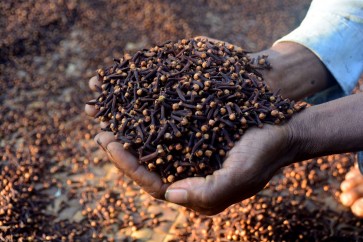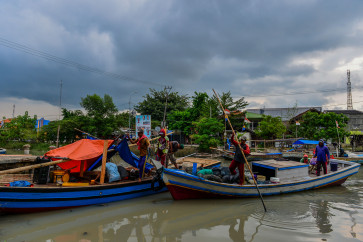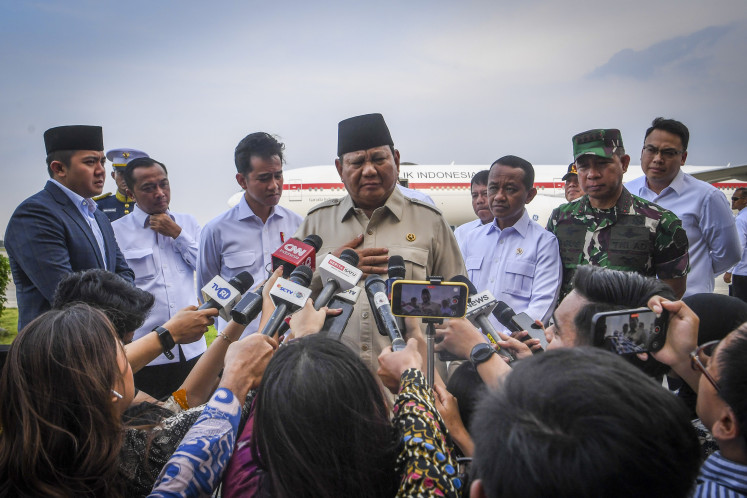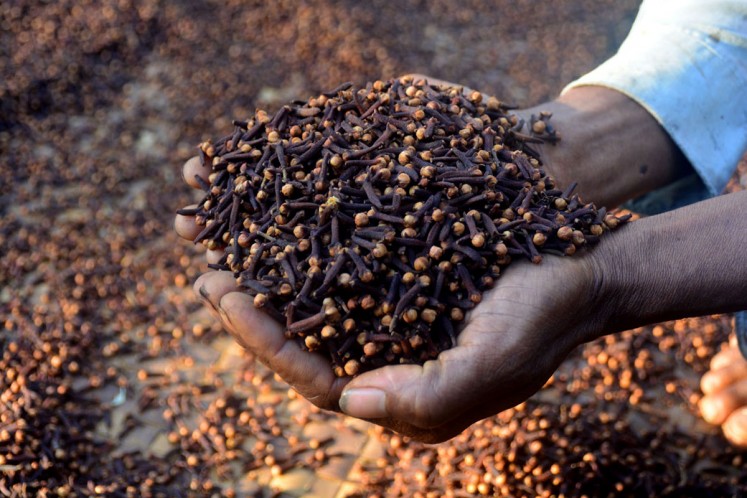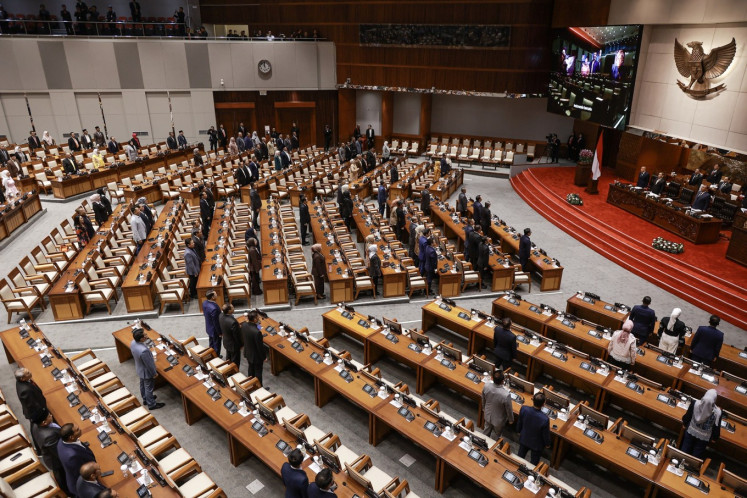Popular Reads
Top Results
Can't find what you're looking for?
View all search resultsPopular Reads
Top Results
Can't find what you're looking for?
View all search resultsRI looks to Hawaii, Guam to develop Natuna Islands
Indonesia is looking to Guam and Hawaii for inspiration as it seeks to develop Natuna Islands into an international geotourist location while also fortifying its northernmost borders in the contentious South China Sea
Change text size
Gift Premium Articles
to Anyone
I
ndonesia is looking to Guam and Hawaii for inspiration as it seeks to develop Natuna Islands into an international geotourist location while also fortifying its northernmost borders in the contentious South China Sea.
The Foreign Ministry was already working to nominate Natuna in Riau Islands province as a UNESCO Global Geopark, said the Foreign Ministry’s Policy Analysis and Development Agency head, Siswo Pramono, on Monday.
The effort is being coordinated under the Sustainable Island Development Initiative (SIDI) — a multistakeholder engagement and partnership established by the Foreign Ministry in 2016 — as part of Indonesia’s soft diplomacy drive in the South China Sea, a resource-rich region that is also one of the world’s busiest maritime trade routes.
“Now that Natuna has been named a national geopark [in late 2018], our next job is to bring it to UNESCO. Hopefully in 2020 or 2021 it can be listed as a UNESCO geopark,” Siswo said.
The South China Sea has for decades been the subject of overlapping territorial claims and is increasingly becoming a flashpoint for countries asserting sovereignty over the disputed waters. Indonesia is not a party to any major territorial disputes, but China’s claim extends to a patch of sea off the Natuna Islands chain. Tensions with Beijing have led Jakarta to assert its exclusive rights over the waters by renaming it the North Natuna Sea and establishing a maritime industry hub in the vicinity.
Indonesia has also beefed up military presence in the area. Since late last year, Natuna Besar Island has become the site of a military base, supported by an Army battalion and companies of marines and engineers.
Meanwhile, in Dompak, Riau Islands, the government would begin the construction of the headquarters for the newly formed Joint Defense Regional Command I (Kogabwilhan I), according to Indonesian Military (TNI) commander Air Chief Marshal Hadi Tjahjanto. Kogabwilhan I will oversee the existing combat units of all three military branches in the area — including the composite battalion in Natuna, which was established late last year — to address specific threats and beef up the interbranch chain of command in the area.
In order to link the nomination of Natuna as a UNESCO geopark with military activities, the Foreign Ministry, with the support of defense authorities, has been working to revise Natuna’s spatial plan.
A team from the ministry's Center for Policy Analysis and Development traveled to Guam and Hawaii last year to learn on how they “succeeded in synergizing economy, tourism and military activities”, according to the center's head of multilateral affairs, Dindin Wahyudin.
The team concluded that Guam's concept was applicable to Natuna. “We have talked with the Defense Ministry about the existing military base helping economic and tourism development in Natuna," Dindin said.
Obtaining the status of global geopark would open the door to an even wider array of opportunities, particularly in ecotourism, which, according to the foreign minister’s adviser for economic diplomacy, Ina H. Krisnamurthi, would “provide the local community with a multiplier effect".
Potential areas of business in Natuna that could attract investors included the development of hotels, hostels and homestays, supporting infrastructure such as clean water treatment and waste disposal systems, and marine tourism facilities, including port services to cater to either yachts or small and medium cruise ships, she said.
Japan has expressed its intention to cooperate in developing tourism, fisheries and energy infrastructure on Indonesia’s outer islands.
“Tourism is part of human connectivity. We usually talk about economic connectivity. Of course that's very important, but human connectivity is also important,” the Japanese Embassy’s deputy chief of mission, Keiichi Ono, said.
He said such cooperation would be part of its free and open Indo-Pacific concept, emphasizing that Indonesia’s location between the Pacific and Indian oceans was “crucially important” for Japan's strategy.
Evan A. Laksmana, a researcher with the Centre for Strategic and International Studies (CSIS), said that, given Indonesia's "underdeveloped diplomatic and military capabilities, raising Natuna’s profile globally strengthens the country's legitimate claims over the islands and the waters" and that it might "also make it harder for other countries to 'encroach' on our sovereign rights".
The plan, however, he said, "will not change Beijing’s regional hegemonic calculus nor will it suddenly make the South China Sea more peaceful".
"How will we know the plan will, for example, stop the annual encroachment of our waters by Chinese or Vietnamese fishermen? So while there is nothing 'wrong' with the plan, let’s not pretend it will help us stabilize our regional environment," he said. (ipa)


